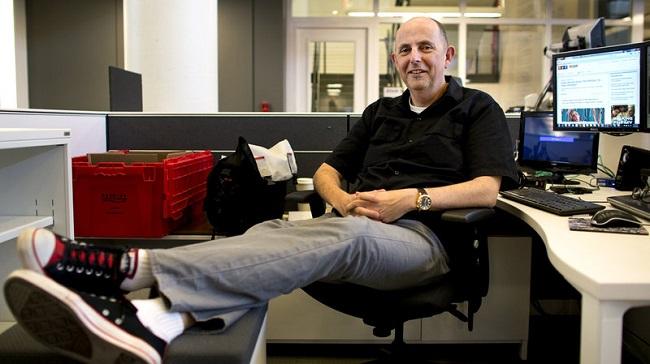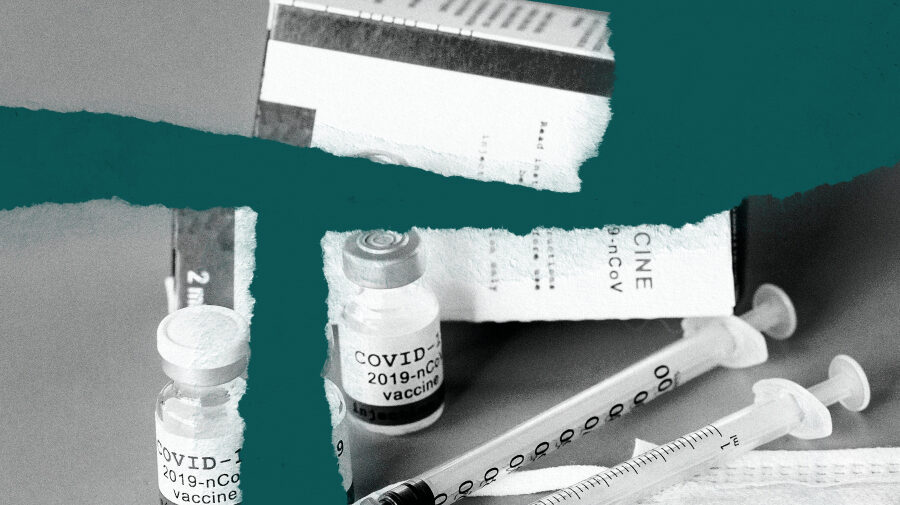Since 2014, Mark Memmott has served as the Standards & Practices Editor for National Public Radio (NPR).
NPR is an American nonprofit media organisation with 34 bureaux around the world and a network of over 1,000 local public radio stations across the United States.
Memmott spoke with First Draft about building an ethical culture at NPR, the impact of social media on journalistic ethics, and his advice for covering stories about disinformation.
First Draft: These days, what are the most common issues that your colleagues at NPR bring to you?
Mark Memmott: We talk a lot about language: the right terms or phrases to use when dealing with sensitive subjects, whether it be abortion or immigration or the opioid crisis, and how to accurately tell those stories.
We talk a lot about the effect of stories on vulnerable people because we’re reporting about people who may be in danger, or in sensitive situations where they’re having health, financial, [or] job crises.
It’s important that their stories be told. But with the internet, having their names forever associated with those stories may be a problem. So we talk through how are we going to identify this person, if fully identifying them would mean the stories follow them for the rest of their lives. Do we go with their first name, or initials? Should we look for other people who might be in different situations that can be fully named?
A lot of those conversations probably didn’t happen 20 or 30 years ago because you assumed that if it’s a broadcast, that story just sort of disappears into the ether. Even if it’s a newspaper, it goes into some dusty archives in the library. It didn’t live the way stories do now, so there are many more conversations along those lines now than before.
There are similar issues regarding the ethics of user-generated content.
It’s one thing if someone posts a funny or sensitive or even highly news-driven photo on their Twitter account, and maybe 50 of their friends see it and comment on it. But if a major news organisation retweets it or embeds it, suddenly, they may be getting hundreds of thousands or more views — which can bring out the trolls [and] seriously unwanted attention. So, you have to be very careful.
If you’re going to embed or use some of that material, we’ve got to make sure, as best we can, that it’s actually what this person says it is, and that it isn’t a three-year-old earthquake damage photo that someone is pretending is new earthquake damage information. You have to ask: does this person have the rights to that photo? Did they take it, or did they get it from somewhere else? It can get complicated.
What kind of standards training does NPR currently provide to new journalists?
All new employees have to come to a meeting with me where I talk about our ethics handbook. I talk about the history of it. I make sure they know where all the material is in case they need to look up what [NPR’s] position is.They all receive, once a week or so, a note that I write to the staff about one issue or another. I’m in the middle of the darn newsroom — I don’t have an office, so I’m easy to find.
The deputy managing editor and other senior editors are well-versed in our standards and practices, and are available to answer questions and empowered to make decisions. So what we’ve tried to do is make [our standards] a natural part of the work here, so that you have those kinds of conversations and you think through the issues, based on the guidance we’ve given in the past.
What are your top tips for journalists using social media to promote their work or to newsgather?
Don’t opine. Keep your political views out of it unless you’re a commentator or op-ed writer. You’re there to report and give people the information they need to decide what to think, not to tell them what to think.
I’m in the middle of the darn newsroom — I don’t have an office, so I’m easy to find.
Be careful about what you’re retweeting or how you’re retweeting things. Retweets may very well be perceived as endorsements; you can’t just say that retweets are not. Don’t just retweet without thinking. When in doubt, have the person at the next desk look over the thing you really want to say on Twitter or Facebook, because you may want to pause or not hit publish.
And remember, as journalists, we aren’t part of the story. Except in unusual circumstances, we’re there to cover the news, not to participate in the news.
What are some ways in which young readers or young journalists have helped push NPR’s standards and practices forward?
There are a lot of good discussions about language and the changing nature of the way people are using language. It’s come up a lot in [stories about transgender issues]: how you talk about someone who has transitioned and the things that you shouldn’t talk about, such as deadnames or very personal details. We’ve had a lot of good conversations from folks here on that.
We have the Code Switch team, which does a podcast and a blog on all sorts of fascinating stories around language and race and gender. And their work — the kind of conversations they have — has filtered through into our other reporting.
Part of the fun of being a journalist is that language is always evolving and changing, and we need to be aware of what’s happening — not necessarily adopting everything that is happening, but making intelligent choices about when we do need to change our language.
What are the most urgent ethics issues these days that journalists should read up about before they start their first newsroom jobs or newsroom internships?
If you’re coming to a more-or-less mainstream news organisation, [you should] realise that it’s expected that you won’t be advocating on social media or donating to political causes or marching at political demonstrations. Again, we’re there to cover the news, not be part of the news. And that seems to come as a surprise to some who are just beginning their careers and may have thought that advocacy is part of the equation, when news organisations still — the better ones, at least — say: “No, it’s not.” If you want to be an advocacy journalist, that’s fine, but that’s for others to do, not us.
Many [young journalists] will be a lot more savvy than me about the pitfalls of social media, or the problems of deepfake videos, and things like that. But they need to be aware that the pressure will only increase, and that the media will be seeing all sorts of things that look like great stories, when in fact we need to slow down, check what’s going on and verify. We can’t instantly respond, even if the pressure is great to do so.
Part of the fun of being a journalist is that language is always evolving and changing, and we need to be aware of what’s happening — not necessarily adopting everything that is happening, but making intelligent choices about when we do need to change our language.
The bottom line is still fact-checking and verification. Your credibility as a journalist will depend upon how well you do those things, more than whether you’re the most clever writer or the fastest to spot a viral tweet.
It’s interesting that you mention deepfakes, which have become a hot topic nowadays. How can reporters make sure that they are covering stories about disinformation and deepfakes accurately?
It’s a complicated question. You have to find experts who understand what’s going on and really pump them for information — even if it’s not necessarily for a story you’re working on right then. If that’s something that you really want to get your arms around, it’s going to take a lot of conversations and constantly asking questions, and remembering that there’s no question that’s too dumb. If you don’t understand it, there are probably many, many other people who don’t understand.
Get smart people to talk to you, and explain it to you, and keep asking questions until you understand it as best as you can. Then, ask that person, “Who else should I be speaking with?” Build up your sources and, over time, you’ll develop that knowledge and muscle. If you’re constantly looking for more sources and more people to talk to, you’ll be surprised at how deep your understanding can get.
This interview has been edited and condensed for clarity.
To stay informed, become a First Draft subscriber and follow us on Facebook and Twitter.






